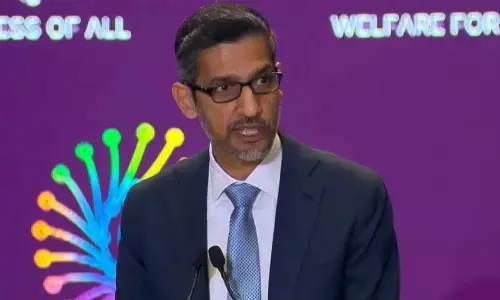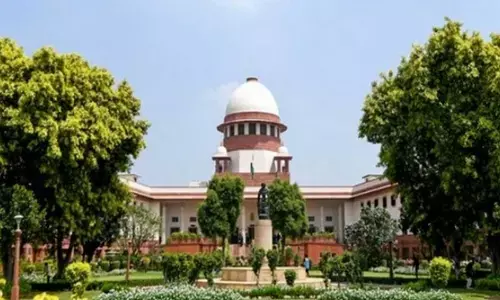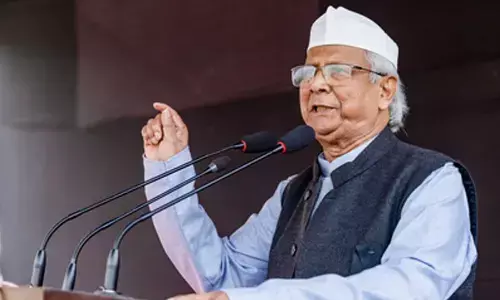RBI red flags stress in Mudra loans

Reserve Bank deputy governor MK Jain on Tuesday warned bankers about the growing stress in Mudra loans, which has crossed more than Rs 3.21 lakh crore system- wide, and asked them to monitor such loans closely as unsustainable credit growth in the sector can risk the system.
Mumbai: Reserve Bank deputy governor MK Jain on Tuesday warned bankers about the growing stress in Mudra loans, which has crossed more than Rs 3.21 lakh crore system- wide, and asked them to monitor such loans closely as unsustainable credit growth in the sector can risk the system.
Prime Minister Narendra Modi had launched the Mudra scheme in April 2015 with much fanfare to offer speedier credit up to Rs 10 lakh to small businesses which are non- corporate, non-farm small/micro enterprises and which normally do not get bank funds due to their poor and mostly no credit rating.
These loans are extended by banks, NBFCs, RRBs, cooperative banks and small finance banks. Interestingly, it can be recalled that within a year of the launch of the scheme, the then Reserve Bank governor Raghuram Rajan had warned of asset quality troubles bubbling in the scheme but the then finance minister Arun Jaitley had brushed aside the concerns.
"Mudra loans are a case in point. While such a massive push would have lifted many beneficiaries out of poverty, there has been some concerns at the growing level of non-performing assets among these borrowers," Jain told a Sidbi event on microfinance.
The commercial-banker-turned central banker said banks need to focus on the repayment capacity at the appraisal stage itself and monitor loans through the life cycle of the account much more closely.
The government had in July informed Parliament that total NPA in the Mudra scheme of over Rs 3.21 lakh has jumped to 2.68 percent in FY19 from 2.52 percent in FY18.
Since inception of the scheme, over 19 crore loans have been extended under the scheme up to June 2019, the government had informed.
Of the total 3.63 crore accounts are in defaulted as of March 2019. However, according to an RTI reply, the bad loans in the Mudra scheme soared a whopping 126 percent in FY19-jumping by Rs 9,204.14 crore to Rs 16,481.45 crore in FY19 from Rs 7,277.31 crore in FY8.
Jain said, "systemic risk may arise from unsustainable credit growth, increased inter connectedness, pro-cyclical and financial risks manifested by lower profitability."
It is interesting to see leading e-commerce companies tying up with banks and NBFCs to offer working capital loans to their suppliers, that are mostly micro and small enterprises, at competitive terms, he said.
Stating that GST has hit the informal economy significantly, he said "as a result of the improved digital footprint, MSMEs have become attractive clients for banks, NBFCs and MFIs, thereby reducing their dependence on informal source of funds."
The cost of credit for MSMEs will also come down meaningfully as lending will shift from collateral based lending to cash flow-based lending, he said.
Noting that technology has its own share of risks and challenges for the financial sector regulators and supervisors, he said, "early recognitions of these risks and initiating action to mitigate the related regulatory and supervisory challenges is key to harnessing the full potential of these developments".
Focus of the MFI sector must be on digital finance, he said adding data confidentiality and consumer protection are major areas that also need to be addressed by them.
"Keeping in view the need to increase transparency, address customer-centric issues and safeguard the interest of low-income customers, micro finance lenders must put the interest of their clients first and implement the code for responsible lending," he said.
MFIs must also broaden their client outreach to reduce the concentration risk in their own interest and to serve a wider clientele base.
From a financial inclusion perspective MFIs should critically review their operations so other regions don't remain underserved, he said.
Addressing the event, Sidbi chairman Mohammad Mustafa said the microfinance sector plays an instrumental role in providing credit to low-income households, helping them in their economic development and overall empowerment.








